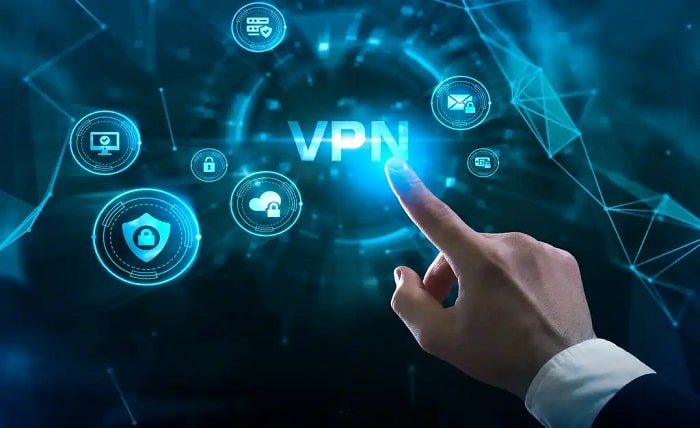Top 5 Reasons Your Online Security Needs a VPN

The Internet is a huge playground, but sometimes it feels like your ISP is holding you back. Whether bandwidth throttling or blocking content you need for work, a VPN cloaks your online activity so you can surf freely.
Your browsing data can be tracked and sold to third parties, making you vulnerable to hackers. A VPN prevents this by encrypting your connection.
Keep Your Privacy
What is a VPN and why its needed? When you use a VPN, your data travels through an encrypted tunnel that prevents cybercriminals from seeing what you’re doing online. This is especially important when on public Wi-Fi, like in a coffee shop or hotel. Without a VPN, anyone could spy on your browsing habits and steal your personal information.
Identity thieves can eavesdrop on the unencrypted radio waves sent over your internet connection, and they can use that data to steal your passwords or other personal information. Even your ISP can’t see what you’re doing with a VPN because it is encrypted.
You might be using a VPN to protect your privacy from Big Tech or nosy hackers, but you can also avoid content blocks and government censorship. For instance, if you’re applying for a job and must submit your address or other sensitive information, a VPN will allow you to encrypt your connections and hide your physical location. You can also use a VPN to access geo-restricted websites, news sites, and streaming services.
Access Any Website
A VPN encrypts your connection, making it impossible for cybercriminals to intercept the information you send and receive online. This added layer of security helps protect sensitive data, like passwords and bank details. It also prevents websites from tracking you, which can lead to targeted advertising and other nuisances.
Employers with remote employees — or even work from home — should consider offering them a VPN. It’s one of the best ways to give them secure internet access when they use public Wi-Fi. This is essential to keeping your personal information safe, especially when applying for jobs or using a work email account.
VPNs can also be helpful for bypassing geo-blocking on streaming services. Connecting to a VPN in the country where a show is available can trick these streaming apps into thinking you’re located there. This is a great way to enjoy movies and shows unavailable in your area.
Secure Your Data
Cyber threats can use your personal information to target you with malware or phishing attacks. A VPN protects your data by encrypting files that you send online. This privacy prevents a malicious hacker from intercepting your file and using it to attack you.
Many of us use public Wi-Fi, whether it’s in a coffee shop or while on vacation. If you don’t have a VPN connected, anyone on the same network could see your personal information—from passwords to credit card numbers. Even if you only use your home Internet connection, your router can leave your devices vulnerable to snooping from housemates or untrustworthy neighbors.
Working remotely has become the new normal for millions of employees, and a VPN is essential to their remote work safety. A cybersecurity company’s VPN can route your data through encrypted tunnels that are virtually impossible to snoop on. It can also help protect your device from a rogue VPN that could expose your personal information to hackers. This is especially important because 22 billion records were exposed or stolen by cyberattackers in 2021.
Access Geo-Restricted Content
Many streaming services, gaming platforms, and gambling sites restrict access to their content based on your location. This is due to their agreements with content holders and broadcasting licensing. However, a VPN allows you to bypass this restriction and connect to servers in various locations.
For example, if you travel abroad and want to watch your favorite US Netflix shows, a VPN will let you access the library as if you were in the US. It can also help you bypass geo-blocking for games and movies only available in certain countries.
VPNs are popular among business professionals who work remotely, particularly during the COVID-19 pandemic, but they can benefit anyone worried about their online privacy. Those who frequently use public Wi-Fi or work from home are at higher risk of cyber attacks, and VPNs can help protect their data by scrambling it and making it unintelligible to hackers. In addition, a VPN hides your IP address, so cybercriminals won’t be able to track your activities or identify you by location.
Access Any App
When you use your phone or computer to browse the Internet on public Wi-Fi, your personal information is exposed to cybercriminals. With a VPN, your data is encrypted, making it more difficult for hackers to access your passwords or other sensitive information.
Many people know the dangers of using public Wi-Fi in coffee shops or hotels. When you connect to a public network without a VPN, your browsing and data are sent over unencrypted radio waves that anyone can pick up. This could expose your personal information to cybercriminals, such as identity thieves who can steal your data and take over your accounts or finances.
A VPN can also prevent ISP throttling, which occurs when your provider slows down your internet speed because you’re reaching a data cap or your online traffic is heavy. A VPN can also help bypass censorship by masking your location with an encrypted connection and giving you a virtual address in a different country. This makes it easy to access geo-restricted content from streaming platforms while traveling abroad.




